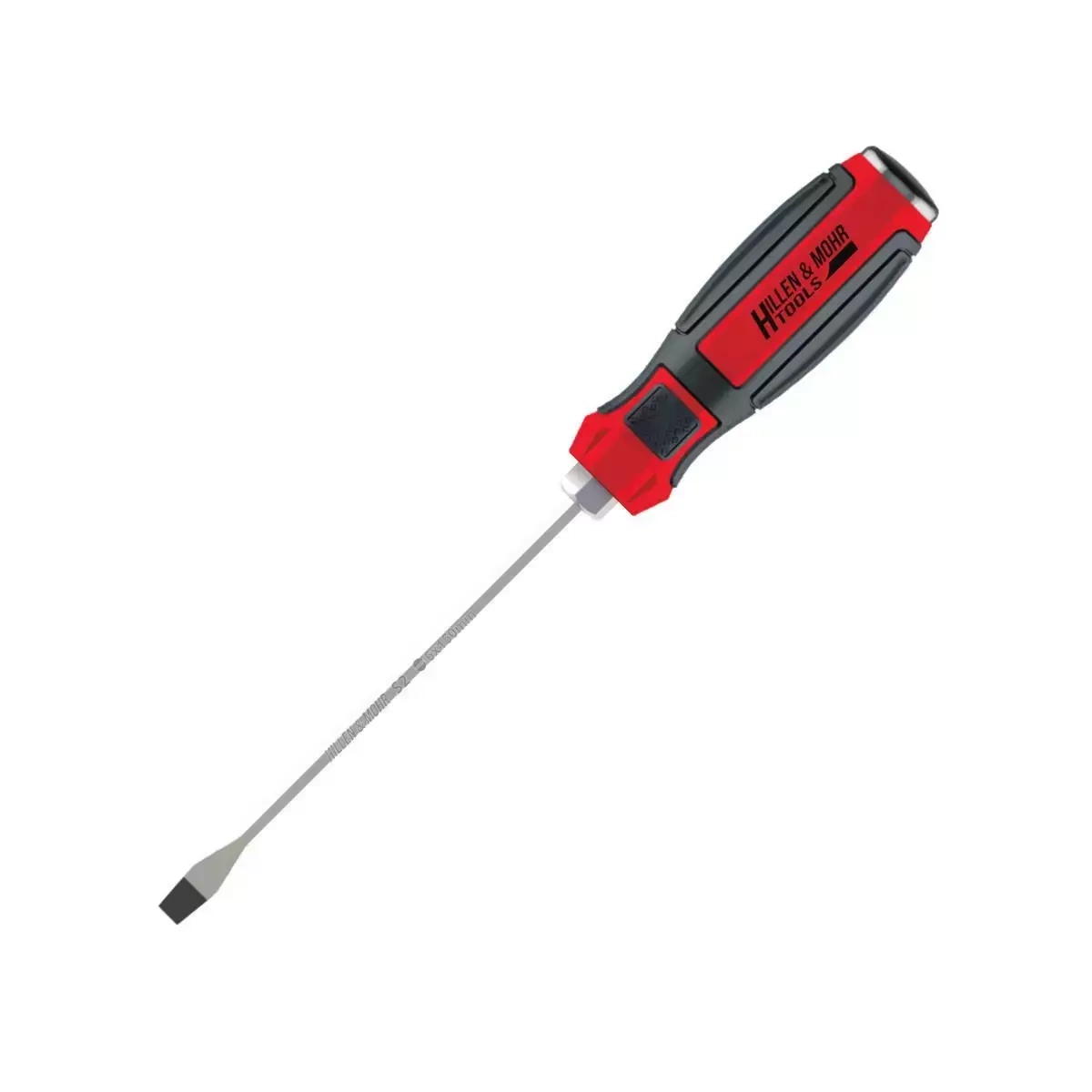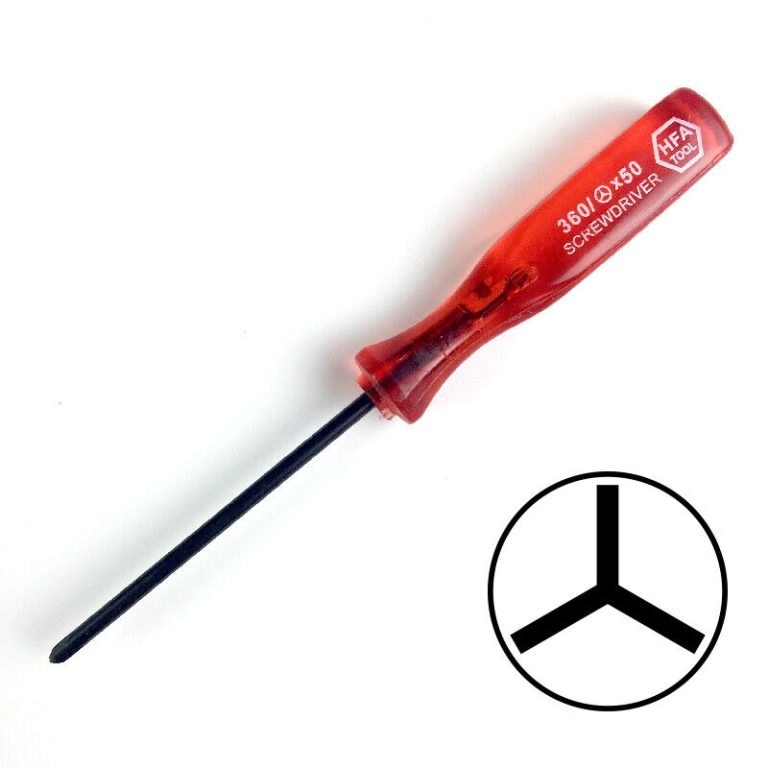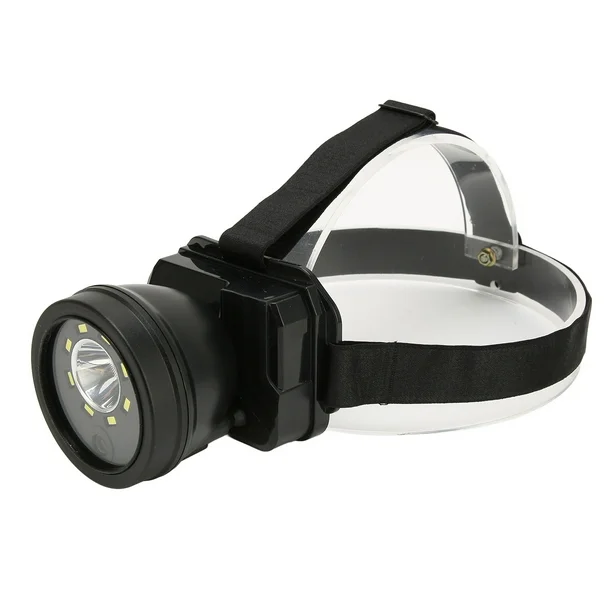
Mastering the Basics: The Essential Guide to Slotted Screwdriver
Introduction to Slotted Screwdrivers
A slotted screwdriver is a tool staple in many toolboxes. Its design is simple. The tip is flat with a straight edge that fits into a screw’s single slot. This basic tool is vital for various tasks. You can use it for tightening or loosening flat-head screws. These screws appear in countless everyday items. From doorknobs to light fixtures, slotted screws are everywhere. The slotted screwdriver’s simple design makes it user-friendly. Even beginners find it easy to use. Its design has not changed much over time. This testifies to its effectiveness in screwdriving tasks.
A slotted screwdriver turns screws with a single cut on the head. The blade of the screwdriver must match the slot size for best results. Matching sizes ensures a good grip and prevents damage to the screw or tool. An incorrectly sized screwdriver can slip and cause injuries or ruin work surfaces. Some models feature a flattened tip that allows greater torque. This is helpful when dealing with stubborn screws. A good slotted screwdriver can improve the ease and quality of your work. It remains a household essential for its versatility and reliability. Remember to choose the correct size for a safe and efficient work experience.

Different Sizes and Their Uses
When it comes to slotted screwdrivers, size matters. Each size serves a specific purpose. There is no one-size-fits-all. It is important to match the screwdriver size with the screw’s slot. This ensures a snug fit and optimal torque. A tight fit prevents the screwdriver from slipping. It prevents damage to the screw head and work surface.
Using a screwdriver that is too small can strip the screw head. This makes removal difficult. If the screwdriver is too large, it can deform the slot. Using the wrong size can also hurt your hand or wrist. Always start with the correct screwdriver size for the task at hand.
Here’s a quick guide to common sizes and their typical uses:
- Small slotted screwdrivers are best for precision jobs. They are ideal for jewelry, eyeglasses, and electronics.
- Medium-sized ones suit everyday tasks. Think tightening door hinges or assembling flat-pack furniture.
- Large slotted screwdrivers are for heavy-duty work. They are great for construction or automotive repairs.
With the correct size, a slotted screwdriver makes a job easier and safer. It avoids frustration and potential injuries. For an efficient toolbox, include a range of slotted screwdriver sizes. This prepares you for any task, big or small.

Material and Durability Considerations
The material of a slotted screwdriver significantly affects its lifespan and performance. Manufacturers commonly use steel variants. These include chrome vanadium and stainless steel. Chrome vanadium steel offers a balance of toughness and resistance to wear and fatigue. Stainless steel screwdrivers resist corrosion. This makes them ideal for use in damp or outdoor environments.
Here are key points when considering material and durability:
- Chrome Vanadium Steel: Generally features in higher quality screwdrivers. It is known for strength and durability.
- Stainless Steel: Less prone to rust, making it suitable for moist conditions. However, it may not be as tough as chrome vanadium.
- Carbon Steel: Offers exceptional hardness. Carbon steel tools can handle high torque, but they are more susceptible to rust.
- Handle Materials: Often made from plastics or rubber. Handles need to provide comfort and grip. They should also withstand the wear from repeated use.
- Tip Coating: Some slotted screwdrivers have a tip coated with extra material. This could be titanium or diamond dust. Coatings enhance grip and reduce wear.
Maintaining your slotted screwdrivers is crucial for their longevity. Store them in a dry place to prevent rust. Oil the metal parts occasionally if they are not corrosion-resistant. Always choose screwdrivers with sturdy and well-fitted handles. Tools that break down often can cause disruptions during work. They can also pose a safety risk.
Choosing a slotted screwdriver with the right material properties is key. It enables the tool to withstand the demands of different tasks. This choice ensures a long-term investment, safety, and reliability in your work.

Handling and Maintenance Tips
Proper handling and maintenance keep your slotted screwdriver in top shape. Here’s how to ensure your tool’s longevity and safety:
- Clean After Use: Wipe your slotted screwdriver with a clean cloth after each use. This removes debris and prevents rust.
- Dry Properly: If the screwdriver gets wet, dry thoroughly. Moisture leads to rust and weakens the tool.
- Regular Inspection: Check for damage regularly. Look for cracks in the handle or wear on the tip. Replace if necessary.
- Avoid Improper Use: Do not use a slotted screwdriver as a chisel or pry bar. This can cause damage or breakage.
- Correct Storage: Store your slotted screwdrivers in a toolbox or rack. Avoid tossing them into a drawer where they can get damaged.
- Lubricate Joints: If your slotted screwdriver has moving parts, lubricate them occasionally. Use a light machine oil to avoid stiffness or seizing.
- Handle with Care: Ensure you have a firm grip and apply pressure directly. This prevents the tool from slipping out of the slot.
By following these simple yet effective maintenance tips, you can extend the life of your slotted screwdrivers and maintain their performance and reliability. Whether for professional work or DIY projects, taking care of your tools is as important as using the right size and type for the job at hand.
Must-Have Slotted Screwdrivers in Your Toolbox
Every toolbox should have a few key slotted screwdrivers. They are essential for a wide range of tasks. Below are must-have sizes and types that will prepare you for almost any job:
- Precision Screwdrivers: Tiny screws are common in gadgets. Precision screwdrivers with small tips are a must.
- Standard Flatheads: A set ranging from 3mm to 8mm covers most household needs.
- Stubby Screwdrivers: Short handles help in tight spaces. Ideal for drawers and under-sink areas.
- Mechanic’s Flatheads: Longer and thicker for high torque needs. They work well for automotive fixes.
Adding these to your kit ensures you’re ready for delicate electronics or sturdy carpentry. A varied selection also reduces the chance of using the wrong size. This could lead to stripped screws or damage. Remember, the right tool makes any task simpler and safer. Launch into your next project with the confidence that you have the right slotted screwdrivers at hand.

The Role of Slotted Screwdrivers in Electronic Repairs
Slotted screwdrivers are crucial for repairing electronics. These sensitive devices often have tiny screws. Without the right tool, you risk damaging delicate components. Let’s explore why slotted screwdrivers are indispensable in electronic repairs.
- Precision Tasks: Electronics are filled with small, precise parts. A slotted screwdriver with the right tip size is perfect for these tasks.
- Avoiding Damage: Using the correct size screwdriver prevents slipping. This ensures you don’t scratch or harm circuit boards and other parts.
- Flexibility: Many electronic items use flat-head screws. A good set of slotted screwdrivers covers the range of sizes you’ll encounter.
- Control: When repairing electronics, you need to be careful. The right slotted screwdriver gives you control to apply just enough torque.
- Accessibility: Some screws are in tight places. Precision slotted screwdrivers can reach these without trouble.
Repairing electronics needs a steady hand and the correct tools. Small slotted screwdrivers are often the best choice. Their precision and size options make them ideal for most electronic repairs. Always choose a screwdriver that fits well. This helps you avoid slips and potential damage to high-cost gadgets. With slotted screwdrivers suited for electronics, you’ll be ready for delicate repair jobs.
Selecting the Right Slotted Screwdriver for DIY Projects
Choosing the proper slotted screwdriver is key to successful DIY projects. Here are some pointers to help you select the right one:
- Identify the Screw Size: Look at your project’s screws. Pick a screwdriver with a tip that matches the slot width.
- Consider the Handle: Ensure the handle is comfortable. A good grip reduces hand fatigue during long projects.
- Tip Material: Opt for a screwdriver with a strong tip material. This prevents wear and tear over time.
- Length Matters: For hard-to-reach screws, go for a longer screwdriver. It gives better access and torque.
- Durability is Crucial: Choose a screwdriver that will last. Durable tools save money in the long run.
- Multipurpose Use: If possible, get a screwdriver that serves multiple purposes. Some come with interchangeable tips.
By considering these factors, you will find the right slotted screwdriver. It will fit the screws, feel right in your hand, and last many projects. Remember, quality tools are an investment in your DIY journey. They bring ease and safety to your work and can last a lifetime with proper care.

Conclusion: Why Slotted Screwdrivers Remain Essential
In conclusion, slotted screwdrivers hold their ground as essentials in any toolbox. Their continuous relevance is due to several factors:
- Simplicity and Versatility: Their straightforward design suits a wide array of tasks, from delicate electronics to robust construction work.
- Size Precision: Various sizes ensure the right fit for different screw slots, enhancing safety and efficiency.
- Material Strength: Materials like chrome vanadium steel grant them durability for long-term use.
- Easy Maintenance: Simple care routines extend the life of these tools, saving the user from frequent replacements.
- Accessibility: Their ability to fit into tight places makes them indispensable, especially in tricky repairs.
- Affordability: Slotted screwdrivers are cost-effective, which makes them a smart investment.
For these reasons, despite the surge of new tool designs, the classic slotted screwdriver stays irreplaceable. Units in your toolbox serve countless jobs. Always choose the right size and material quality. Handle them with care. With these practices, your slotted screwdrivers will continue to be valuable for years to come.

